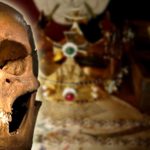The only thing new in the world is the history you don’t know. That line isn’t original, I stole it from Harry Truman. And I stole it because I ran across some history I didn’t know recently. Until that moment, I thought I had a pretty good handle on the American Civil Rights movement and the career of Martin Luther King Jr. I was gobsmacked to learn that Dr. King had been given an “honourary” doctorate by Newcastle University in England and had given an extemporaneous speech there in 1967. Researchers just found the film, and the BBC just broadcast a program about it.
When I think of Dr. King, I think of a jail cell in Birmingham, Ala., or of the Lincoln Memorial or perhaps, Oslo City Hall and the Nobel Peace Prize. I certainly don’t think of him in Newcastle or as my Geordie mates from up that way call it “The Toon,” or “town” if you’re a namby-pamby Londoner.
Yet, there he was on November 13, 1967, just five months before being murdered. He stood before the Chancellor of the University, the Duke of Northumberland, being awarded the degree of Doctor of Civil Law Honoris Causa. I once had the great good fortune to be in attendance at a commencement exercise at Howard University (my daughter Brittany was graduating), where astronomer Neil deGrasse Tyson spoke. Before the main remarks, he noted that graduations were the only time he felt comfortable at a social engagement that involved robes and hoods. I suspect the irony of that amused Dr. King as well.
Dr. King had traveled to Newcastle with Andrew Young specifically to accept the award, and they spent just 24 hours in the U.K. — there was much more to be done in the U.S. Contrary to tradition, Dr. King was asked at the last moment to speak, and so he did, without notes.
It is not as great a speech as “I have a dream” nor “I have been to the mountaintop,” but in a few eloquent minutes in The Toon, he provided as strong a case against racism and for legislation to address it as any I have heard.
If I spent a week or so scribbling and editing, I still doubt I would come up with anything as apt or succinct as “Racism is still the colored man’s burden and the white man’s shame. And the world will never rise to its full moral, political or even social maturity until racism is totally eradicated.”
Dr. King encapsulated the entire social stress of the 1960s with, “There are three urgent and indeed great problems that we face not only in the United States of America but all over the world today. That is the problem of racism, the problem of poverty and the problem of war.”
And he explained the phenomenon of social change: “(I)t may be true that morality cannot be legislated but behavior can be regulated. It may be true that the law cannot change the heart but it can restrain the heartless. It may be true that the law cannot make a man love me but it can restrain him from lynching me; and I think that is pretty important also. And so while the law may not change the hearts of men, it does change the habits of men if vigorously enforced, and through changes in habits, pretty soon attitudinal changes will take place and even the heart may be changed in the process.”
Not bad for an impromptu speech, or in Geordie, “Wey aye, man! Purely belta!”
As for Newcastle, well, it’s not just the place you carry coals to. Andrew Young said Dr. King “didn’t need to fly all the way over there to get recognized by Newcastle, and yet he did. I think it gave an extra prestige to our movement to have the international support that we had. When Newcastle recognized our movement, they were also, I think, blessing the concept of the diversity of God’s children. I count Newcastle as one of the good guys that’s working to make peace on earth and good will to men, women and children.”
As a graduate of the London School of Economics, it will always bother me that the only British university to so honor Dr. King was Newcastle, but as someone who believes in equality, I am so very glad to have learned all this.
Jeff Myhre is a contributing journalist for TheBlot Magazine.





